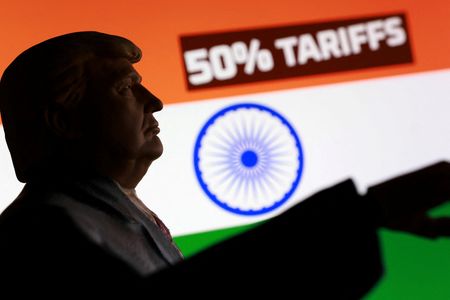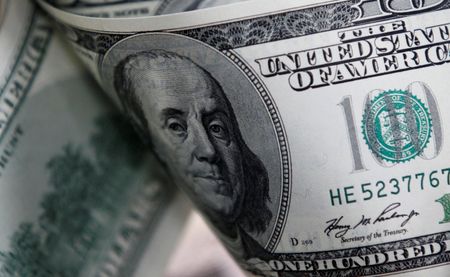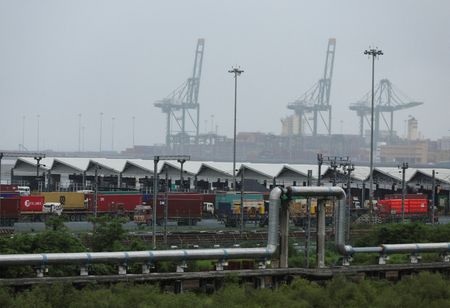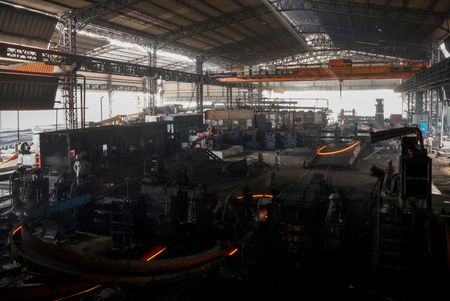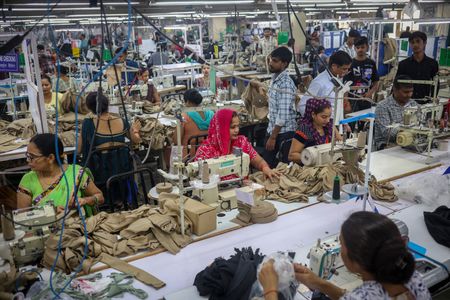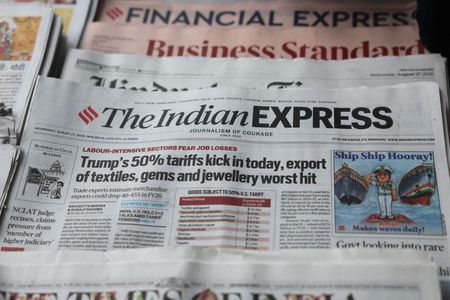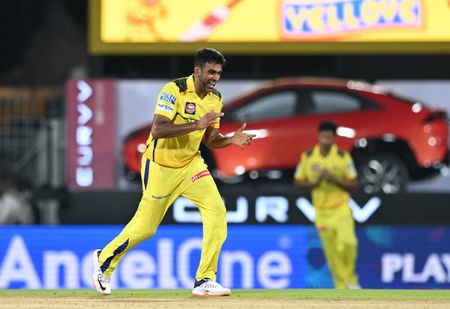NEW DELHI (Reuters) -U.S. President Donald Trump’s additional 25% tariff on Indian imports took effect on Wednesday, raising duties on some shipments to as much as 50% – among the highest imposed by Washington and on par with Brazil and China.
Here is a look at why the additional tariff was imposed, and what it means for India.
WHY DID TRADE TALKS BREAK DOWN?
India and the U.S. have held five rounds of discussions since April to clinch a trade agreement, but differences over the opening up of India’s vast farm and dairy sectors, and its purchases of Russian oil led to a breakdown of talks.
Officials on both sides also blamed political misjudgment and missed signals for the collapse of the talks.
WHAT TARIFFS WERE IMPOSED ON INDIA?
The U.S. announced a 25% tariff in July on Indian imports, which took effect on August 7, as part of Trump’s reciprocal tariffs on goods from countries that he said had high barriers to U.S. imports.
The U.S. had a $45.8 billion trade deficit with India in 2024.
Hours before the levy took effect, however, Washington announced an additional 25% tariff on Indian goods, citing New Delhi’s continued imports of Russian oil, which now constitute about 35% of its total fuel imports, up from 0.2% before the Ukraine war.
This tariff came into effect on Wednesday.
WHICH SECTORS WILL BE IMPACTED?
The additional tariff will take total duties to up to 50% for some goods, including garments, gems and jewellery, footwear, sporting goods, furniture, and chemicals, threatening thousands of small exporters and jobs.
Goods already in transit to the U.S. before the deadline, however, have been granted a three-week exemption.
Steel, aluminium, passenger vehicles, copper and other goods subject to separate tariffs under reciprocal trade programmes have also been exempted.
HOW HAS INDIA RESPONDED?
India has promised financial aid, including greater subsidies on bank loans and support for diversification in case of financial losses because of the tariffs, and has identified nearly 50 countries to which it could boost exports.
Officials say trade talks with the U.S. are also continuing.
HAS INDIA CHANGED ITS STANCE ON RUSSIAN OIL IMPORTS?
India has not issued any directive regarding oil purchases from Russia so far, but Russian embassy officials in New Delhi say that Moscow expects to continue supplying oil to the South Asian nation.
(Compiled by Sakshi Dayal; Editing by Raju Gopalakrishnan)

